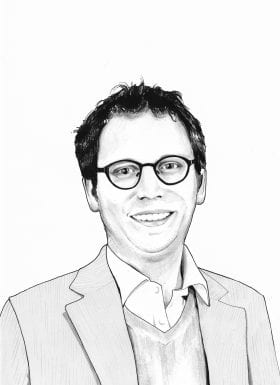-
Ammodo Science
Award for groundbreaking research2024 -
Ammodo Science Award
The Ammodo Science Award for groundbreaking research is intended to stimulate potentially groundbreaking research. Such research is usually the result of team work, and for that reason this Award is for research being carried out by a group of researchers working together, and is intended to recognise the contribution of every member of the group. The Award is presented every two years in four scientific domains: Biomedical Sciences, Humanities, Natural Sciences and Social Sciences.
-
Nomination & Selection
Each edition, the Ammodo Science Award for groundbreaking research includes a cash prize of 1,600,000 euros for each of the science domains Natural Sciences and Biomedical Sciences and a cash prize of 800,000 euros for each of the science domains Humanities and Social Sciences. The rectors of the fourteen Dutch universities affiliated to Universities of The Netherlands (UNL) may nominate a maximum of one research project per scientific domain.
-
Winners
The Ammodo Science Award for groundbreaking research focuses on potentially groundbreaking research and ensures that all researchers involved in the winning project are recognised and rewarded.
Barteld Kooi
Laureate Humanities 2015

Barteld Kooi (1976) studied philosophy in Groningen. After graduating he joined the Groningen Faculty of Philosophy. In 2011 he was appointed Special Professor of Logic through the Groningen University Fund Foundation.
In addition to an Ammodo KNAW Award he has also received NWO Veni and NWO Vidi grants
Research focus
Barteld Kooi explores the consequences of the availability and the dissemination of information
From abstract philosophy to science quiz
Kooi’s work is grounded in ‘dynamic epistemic logic’: a school of philosophical inquiry searching for fundamental laws of logic around knowledge and information and the sharing or transferring of them.
What knowledge should people share as a group to achieve a better result? How does the sharing (or not) of information alter the balance between individual and group interests?
Many of these issues can be approached via fundamental laws once they have been translated using dynamic epistemic logic. Insights gained can then be applied in various fields: information science, economics, robotics, artificial intelligence, network security, cryptography, linguistics and research into interaction between individuals and groups.
Kooi is an authority in his field. Together with two colleagues, he wrote an international standard which is widely used and quoted. Utilising elements of game theory, he extended existing theories so that they can also be applied to issues in which probability plays an important role.
In addition to his academic work Barteld Kooi enjoys his interaction with society. He has already organised several editions of the “Groningen Night of Philosophy” and invented questions for the National Science Quiz.
Kooi: “My research is about logic. I develop theories which state with mathematical precision what conclusions you can draw from the information you have at your disposal. I am particularly interested in situations where the information is about information that other people have at their disposal. We call this ‘higher-order information’ and it is often very important when people have to work together or when they have opposing interests. Think of a game of poker or football, but also of economic markets and military conflicts. These are situations in which the players behaviour is strongly influenced by what they know about what others know about them. There are already models for such decision-making strategies, but these often take too little account of the fact that in practice both players won’t use perfectly logical reasoning and will make mistakes.
The Ammodo KNAW Award has allowed me, together with two PhD students, to develop a logical decision model for situations where it is important to take into account the logical fallibility of another party. How can you rationally best deal with irrationality?”